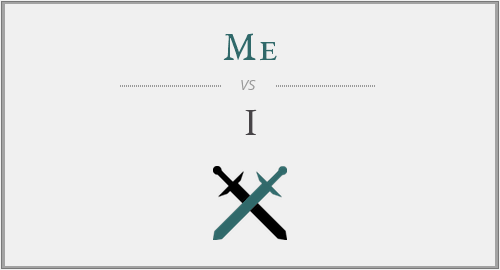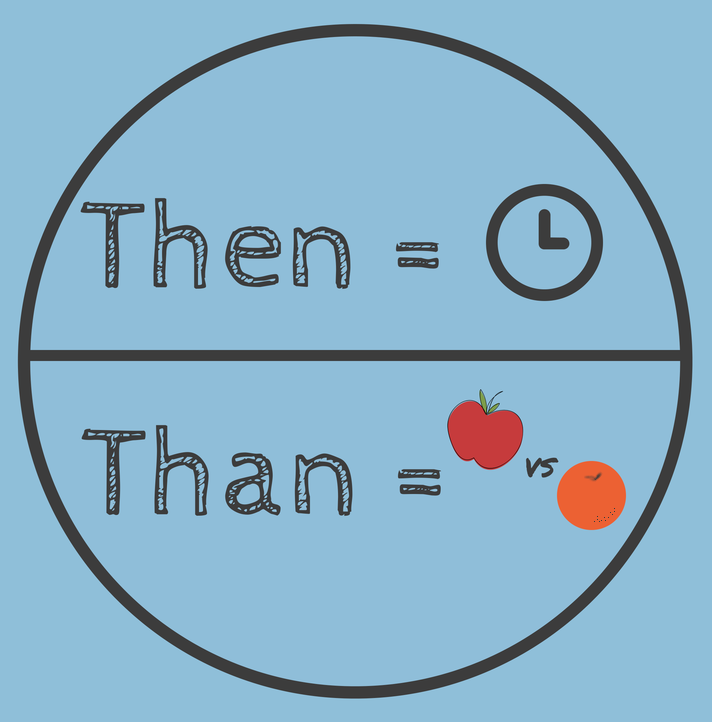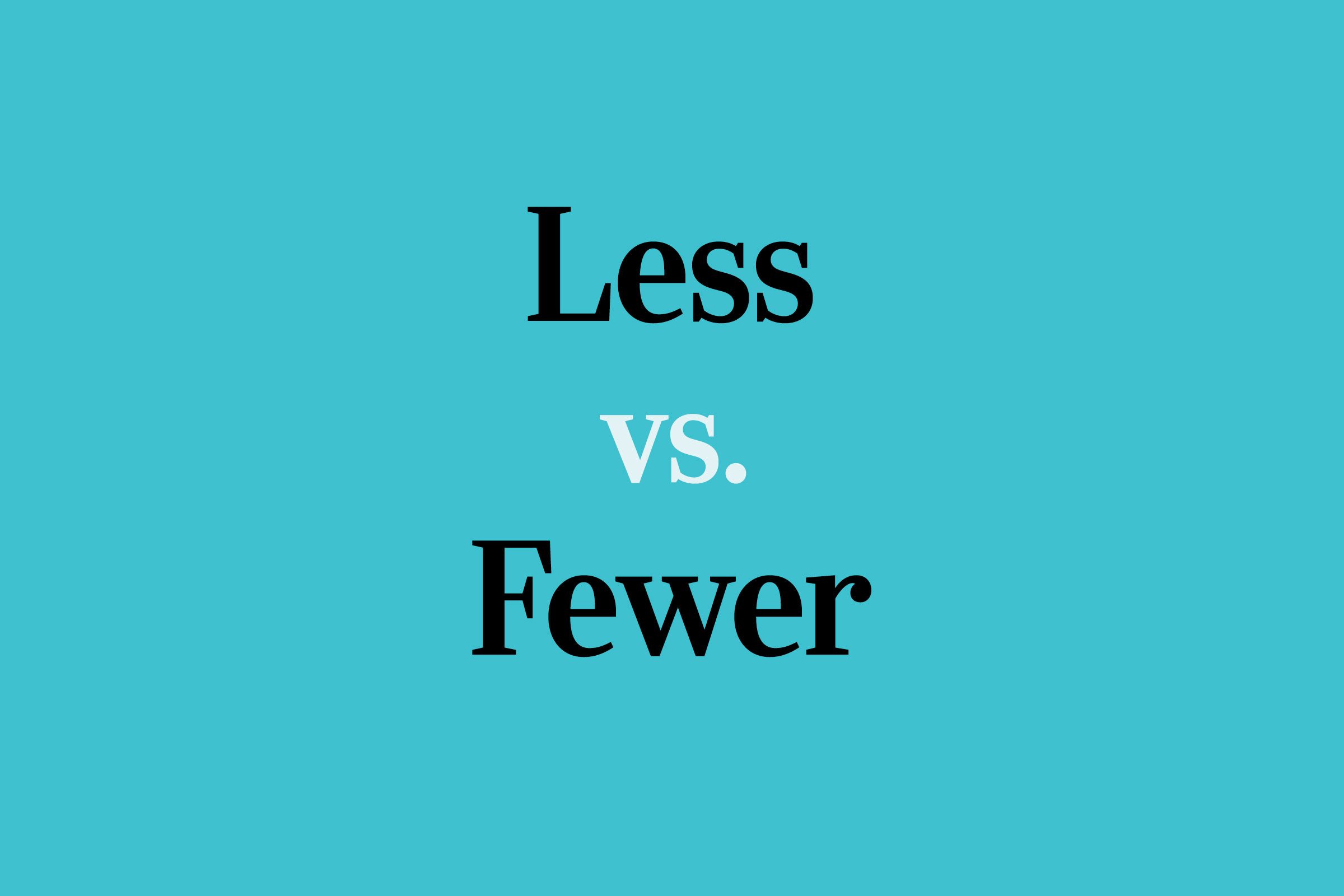In this article, you will discover 35 common grammar mistakes people make when writing. Believe it or not, some of those people are educated and smart, ranging from regular entrepreneurs to professionals with Ph.D.
Do you know grammar errors can prevent you from getting promotion?
Grammarly recently published a study conducted on LinkedIn profiles of 100 native English-speakers working in the Consumer-Packaged Goods (CPG) industry. The goal of the study was to determine the impact of grammar on their professional career.
Among the 100 participants examined, each had worked for up to 3 employers over the first 10 years of their career. 50% were promoted to director position or above within those 10 years, and the other 50% were not.
The research revealed that the 50 professionals who did not get promoted made 2.5 times as many grammar mistakes as their director-level colleagues. They found few grammar errors correlate with more promotions; Professionals with fewer grammar mistakes or errors in their profiles had obtained higher positions.
Here are top 35 grammar mistakes and errors in English:
- Whom vs. Whose vs. Who’s
Let’s consider these 3 words one by one:
“Whom” is used as the object form of who to refer to people when the person is the object of the verb.
Here’s a very easy trick to determine when whom is the correct pronoun to use: Replace whom with her or him. If the sentence is still consistent and grammatically correct, then whom is the correct choice.
Example: I heard the voice of the Lord, saying, whom shall I send, and who will go for us? Isaiah 6:8.
“Whose” is an interrogative pronoun and a possessive pronoun used to refer to humans when asking (or telling) to whom something belongs. In short, it expresses ownership to someone.
Example: Whose car is that black Nissan Juke in the parking?
“Who’s“, by contrast, is a contraction of who is or who has, used to identify a living being or someone who’s doing something.
Example: Who’s taking me to work today?
- “Piece of Mind”
Everyone likes to have peace of mind, but it does not mean everybody can write it correctly. The proper spelling P-E-A-C-E when indicate a mental state of tranquility, or a freedom from anxiety and worry.
Here is a famous quote by George Michael which includes Peace of mind: “You’ll never find peace of mind until you listen to your heart.”
- First-come, First-serve
Here, SERVED should actually be in past particle; that is, with ED.” Without the d, the phrase suggests that the first individual who comes will be the server of everyone, which is not what the idiom means.
First come first served indicates that people will be dealt in the order in which they arrive or apply. In short, those who come first are the first to be served.
Example: The camping sites are assigned on a first–come–first–serve basis; we have limited space available.
- I Could Care Less
This idiom is used to indicate that you are not at all concerned about something or someone. If you want to express that you are not interested at all in something, the proper sentence is “I couldn’t care less, note the negation.
Here is an example: “Every time I say I could care less my wife corrects me and says, it’s ‘I couldn’t care less.” She thinks she speaks English better than everyone else.
- Lose vs. Loose

People tend to mix up “lose” and “loose” the fact they’re spelled so similarly; yet their spellings and definitions are completely different.
Lose refers to being deprived or unable to find something or someone. It is completely different from LOOSE. For instances:
- You will lose your life If you don’t stop smoking.
- Sonia lost her virginity at age 70.
“Loose”, in the other hand, is an adjective used to refer to something “not tightly fastened, attached, or held,” like loose clothing or a loose tooth. A simple technique to help you determine when to use loose is to remember “loosey-goosey”; both words are spelled with 2 o’s.
Example: At least 2 of the screws are loose
- They’re vs. Their vs. There
These grammar errors are common among natives. Each of these words has different meaning. THEY’RE is a contraction for “they are” (they’re), THEIR refers to something owned by more than one person, and THERE indicates a location or place (there).
Most people who make these grammar mistakes know the difference among the three; they just happen by negligence. To avoid making the same mistakes, make sure you triple check that you write the right word, in the right place, at the right times.
Here is a short sentence that includes all 3: They’re going to love going there. I heard their food is the best!
- Your vs. You’re
The difference between these two is obvious. ‘YOUR’ indicates possession or owning something versus YOU’RE actually being something. A simple and easy way to prevent these grammar mistakes is doing another grammar check before you send or publish the content.
Here is an example: YOU’RE savage exactly like YOUR dog.
- Its vs. It’s
These two words tend to confuse even great writers. “ITS”, without apostrophe, is a possessive pronoun indicating possession. “IT’S”, in the other hand, is a contraction of the words it is or it has.
Consider this sentence as an example: Please, turn the camera on its side to avoid damage. It’s an expensive brand.
- Emigrated to
It is ridiculous to hear even great politicians making this mistake. They confuse EMIGRATE with IMMIGRATE. “Emigrate” and “from” always go together, as do “immigrate” and “to.” The proper way to say it is either Emigrate from or immigrate to.
“Jonas emigrated from France to the United States” is the same as “Jonas immigrated to the United States from France.”
- Missing Coma
Missing a comma in a sentence is another common grammar mistake. Commas are used “after introductory a) clauses, b) phrases, or c) words that come before the main clause.
Example: If it does not rain, we will go to the movie tonight.
Commas also used to separate independent clauses when they are joined by any of these seven coordinating conjunctions: and, but, for, or, nor, so, yet.
Example: “Norway has applied to join the EC, and Sweden is expected to do the same.”
For more information on the use of commas visit this perdue university guide
- Prostrate cancer
As you probably already know the right word is prostate, P.R.O.S.T.A.T.E, which is a walnut-sized gland located between the bladder and the penis and produces some of the fluid that carries sperm during ejaculation.
Some people mistakenly add an extra r, turning the world into “prostrate”, a completely different word which means lay oneself flat on the ground face downward, especially in reverence or submission.
- Do diligence
The right term is Due diligence, D.U.E, which means reasonable steps, such as investigation, audit, or review, performed a person in order to satisfy a requirement, especially in legal or business activities. ‘DO’ diligence is not the proper term, but people write it all the times in important documents.
Example: “In the corporate world, if you have analysts, due diligence, and no horse sense, you’ve just described hell.” Charlie Munger.
- Peaked my Interest
‘Peaked my interest’ is another common grammar mistake. The correct term is PIQUED MY INTEREST. To Pique means stimulate or cause irritation, while peak, in the other hands, signifies rising to a point.
Here are 2 examples of piqued and peaked:
1.”you have piqued my curiosity about the man”.
2.”Sandra peaked in high school. Now it’s all downhill.”
- All the Sudden
All of a sudden is an idiom which is used as an adverb phrase, synonym of suddenly, meaning quickly and unexpectedly. That is, grammatically, you may say “all of a sudden”. The preposition “OF” must be included. Otherwise, just say “suddenly” if you want to shorten thing.
This sentence is a perfect example: The sky turns dark and cloudy all of a sudden. I guess it’s going to rain.
- Effect vs Affect
This is one of the most common grammar mistakes people make. Some people confuse Effect with Affect when writing.
Here is a sample way to understand them: affect is mostly used as a verb meaning to influence something and effect as the consequence or result of the something. The difference between affect and effect is huge, it is incorrect to use one for another.
Example: The lethal effects of hard drugs affect people of every race.
- Me vs. I

Do you know using ME for I or I for ME is one of the most common grammar mistakes people make when writing lyrics? They understand the difference between the words, but when it comes time to use one in a sentence they fail to use it properly.
Wrong: When you are done cooking, can you bring the food to Bill and I?
Good: When you are done cooking, can you bring the food to Bill and me?
- The first-year anniversary
Anniversary is from Latin word “anniversarius,” which means “returning yearly”. It has two roots: “annus,” year, and “versus,” a turning. So, using the word “year” in this idiom is superfluous. The proper way is to say it is “the first anniversary”.
Example: Tomorrow will be the first anniversary of my 10th son.
- Worse comes to worse
This idiom indicates a situation has downgraded or degraded from one negative plane to the lowest possible outcome. There, the second worst ends with T, not e. In short, the idiom is as follow: Worse comes to W.O.R.S.T.
Example: I told you do not get involved; If worse comes to worst, don’t count on me.
- Hot water heater
Saying “hot water heater” is like saying the heater heats hot water. The appliance heats cold water to come hot. So, the term is just Water Heater.
- Bald-faced vs bold-faced lie
Bald-faced lie and bold-faced lie are commonly misused. Both words sound quite like one another. In fact, they are both correct but have two slightly different meanings. A bald-faced lie means one that is evident and clearly untrue; while a bold-faced lie, however, is one that is presumptuous or disrespectful.
To help you better understand, here are 2 examples:
- Evolution is a bald-faced lie.
- In my opinion, the covet-19 death toll is nothing but a bold-faced lie.
- Peek vs. Peak vs. Pique
Here is another grammar error I often see people make, even college graduates who know their difference.
- PEEK is a quick glance or look, typically in a furtive manner.
Example: Johnny sneaked a peek at the map.
- PEAK is a sharp or highest point of something, peak of a mountain for instance.
Example: Remy has reached the peak of his career.
- PIQUE means to stimulate the interest or curiosity of someone.
Example: He was piqued by her beauty.
To prevent yourself from making these grammar errors, carefully take a second look before you publish any content.
22. Who vs That
These 2 words can be tricky for some people. Here is a sample way to see it. You can use Who and That if you are describing something or someone but when you’re describing a person, “who” is the proper way to go.
These 2 examples below will help you understand better:
- A vegan is someone who does not eat meat.
- But Pharaoh said, “Who is the LORD, that I should obey his voice and let Israel go? Exodus 5:2.
- U se They for Brand or Entity as ‘They’
You would not believe how many professionals make this grammar error, using they for a business or entity. A business is singular, not plural; therefore, pronoun it must be used.
Here is an example: It is hard to work for Amazon; It is a rigid company.
- “Alot” vs. A lot vs. Allot
“Alot” is a misspelling of A LOT, 2 words: A and Lot. The word “alot’ does not exist.
A lot is the right spelling. It means many or to a great extent. You cannot go wrong if you use it as a synonym of many.
Let’s look at an example. There are a lot of flowers in Thailand.
Allot – According to Merriam Webster, allot means to distribute or assign a share portion of something to someone. For instance, the mayor allots the available farmland among the settlers
- Shoe-in
The right spelling is “Shoo-in”, which means a person that seems sure to succeed. So, if you’re trying to say that you are a sure winner, avoid writing shoe-in.
Example: Although the evangelicals thought Trump was a shoo-in for reelection, he shockingly lost the race by several thousands.
- Then vs. Than

Writing then, with E, for than, with A, is one of the common grammar mistakes made by Americans.
Then has many meanings: soon after that, nest or after that, that time (in the past or in the future). But regardless, it expresses time.
Here is a simple example: Complete my job and then I will pay you.
“Than”, however, used after a comparative adjective or adverb to indicate inequality. It has absolutely no connection with THEN. This sentence will help you better understand.
Jonas is much better in Math than Romero.
- Tie me over
Saying “tie me over” is like asking someone to tie you on top of something. The expression refers to the ocean’s tide. So, the right way to say it is “TIDE me over”, which means to sustain someone through a difficult time, especially with financial assistance.
Example: “Nina needed some money to tide her over during the lockdown.
- Tow the line
This idiomatic expression TOE the line means accept the principles, authority, or policies of a particular group, especially under pressure. It originally used to position an athlete toes next to a marked line in order to be ready to start a race. It has no connection with tow which is an act of towing a vehicle or boat. So, next time you are wring this expression remember to spell tow with E, instead of W.
Here is toe the line in a sentence: All employees who refuse to toe the line will be fired.
- “A mute point”
Let’s face it, mute means silent, how can you make a point if you remain silent? Moot, in contract, means not worth talking about. The expression, therefore, is “A Moot Point”, which signifies a point that is doubtful. In short, a point can be moot, but not mute.
Here is mute a point in a sentence: “It’s a moot point whether men or women are better drivers.”
- Assure vs. Insure vs. Ensure
All these 3 words indicate something positively or a sure outcome, and this causes people to often mix them up.
- Assure someone of something is to banish his doubts by a promise.
Example: I assure you he is the best barber in the city.
- Ensure something is to guarantee it or make sure it happens. For instance, you can ensure something by covering it with an insurance policy.
Example: Ensure you’re at home when I come tomorrow.
- Insure, however, means to secure or protect someone against risk by arranging for compensation in case of damage to or loss of a property
Example: I have insured the stereo for $150″

It is common to see in checkout aisle in the grocery store that express: 10 items or less”. Allow me to tell you this is a glaring grammatical mistake. The sign should say “10 Items or Fewer.”
Fewer literally means “not as many.” It should therefore be used with countable nouns like candies.
Less, in the other hand, indicates “not as much.” Hence, less is used with uncountable nouns like milk.
Here are less and fewer in a sentence: Children who drink less milk and eat fewer candies tend to be healthier.
- Semicolons
Semicolons are often misused as fancy commas to create longer sentence, even by some famous writers. A semicolon allows to connect two independent paragraphs or clauses that could stand on their own, without using any coordinating conjunction. “Maria is a woman; she sits to pee.”
You can also use a semicolon to separate items in a list that contain commas themselves. A good example would be: There are two options for breakfast: omelet, which is a complete protein; or Rolled oat, a great source of fiber and carbs.
- Eccetera
The word Pronounces “etcetera” exactly how it is spelled, not “eccetera”. It derives from the Latin term et cetera, which means “and the rest”. Getting rid of the “t” is grammatically wrong.
Etc. is used at the end of a list to indicate similar or further items are included.
- Lie vs Lay
Lay is a verb commonly refers to put or set something down.
Here is lay in a sentence: “chickens lay eggs, with or without rooters.”
Lie is being in a flat or horizontal position.
Here is lie in a sentence: “Martha likes to lie on her back.”
Lie can also means make an untrue statement with intent to mislead or deceive.
“People lie about their finance all the time.”
- Title Capitalization
This mistake is understandable; many agencies create different rules on capitulation of titles; it can be confusing. But you don’t have to be. In summary, here are capitalization rules you need to know and apply when writing:
- Capitalize the first and the last word.
- Capitalize nouns, pronouns, verbs, adjectives, adverbs, and subordinate conjunctions.
- Lowercase coordinating conjunctions, prepositions, and articles: a, an, the.
- Lowercase ‘to’ indicating infinitive.
If you have any comment or suggestion, feel free to comment.







